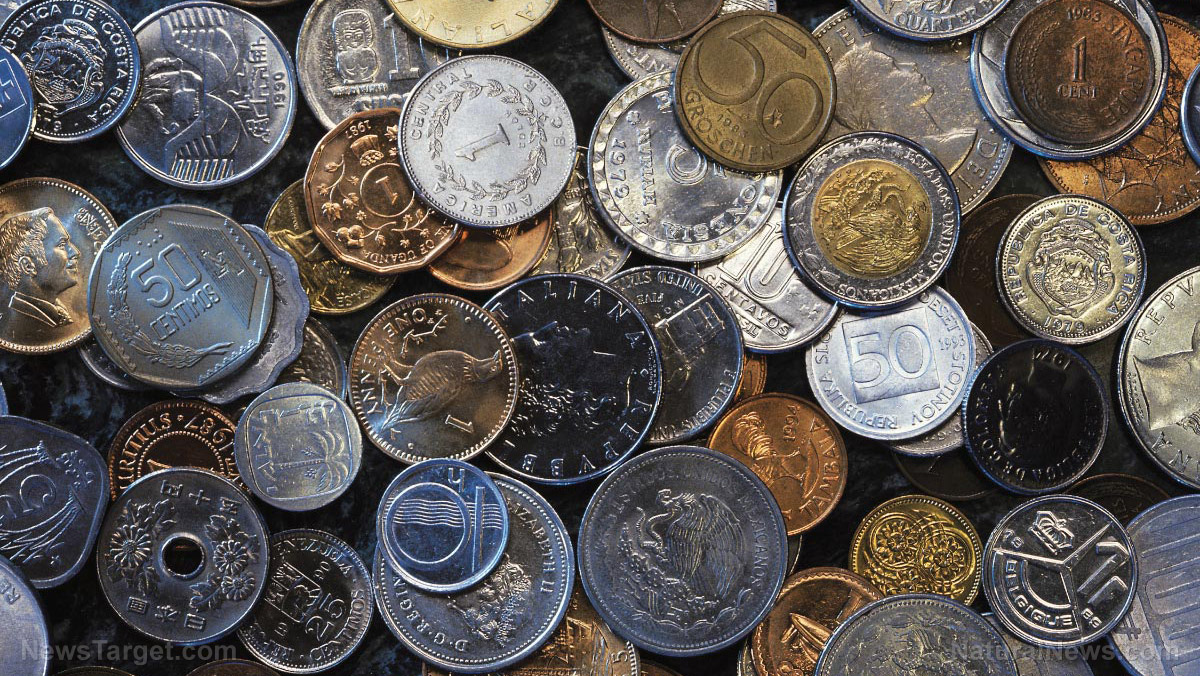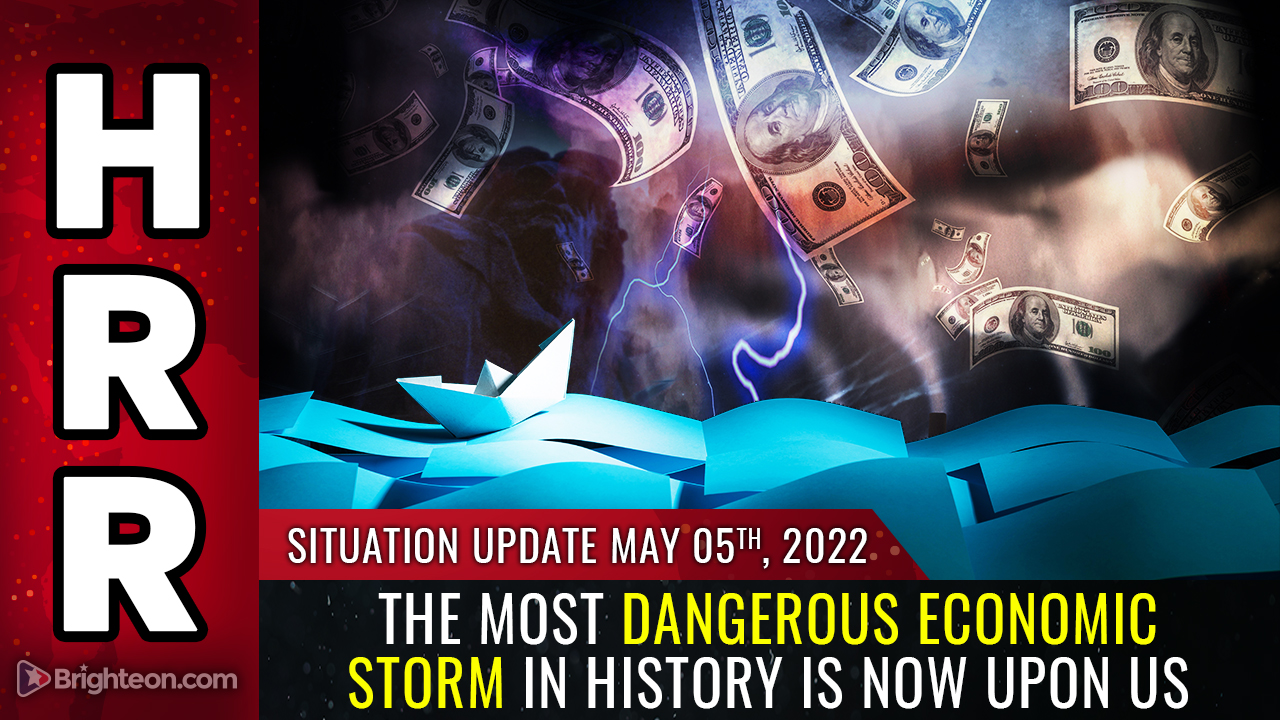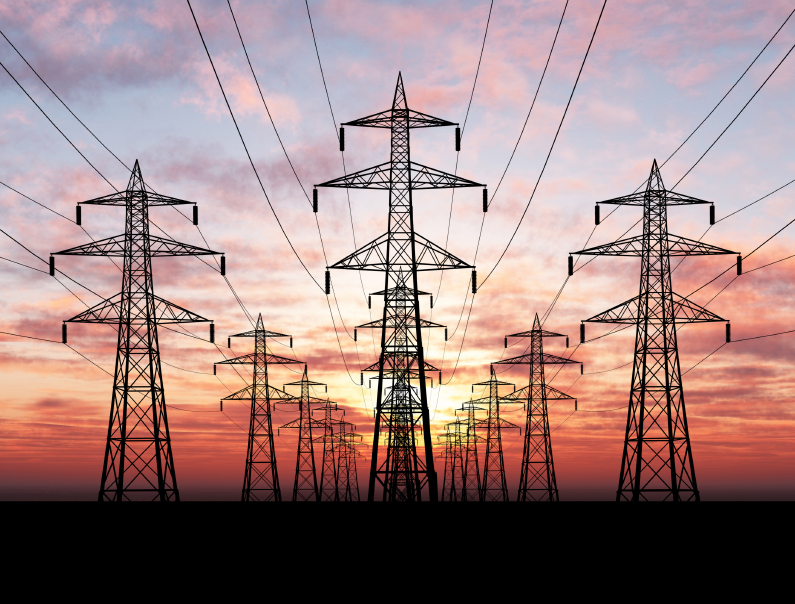U.S. inflation tops OECD countries as Biden’s economic ratings plummet
12/23/2021 / By Cassie B.

In another sign that the economy’s downward spiral is incredibly serious, recent data shows that the U.S. economy noted the highest level of inflation this year among the 38 countries in the Organization for Economic Cooperation and Development, or OECD.
America’s Consumer Price Index annual growth rate of 6.2 percent in the 12 months that ended in October exceeded the OECD average of 5.2 percent. The U.S. was followed by Canada with a 4.7 percent inflation rate. Germany, the UK and Italy rounded out the top five with 4.5, 3.8 and 3 percent, respectively. Japan, in contrast, saw its CPI barely changing. The country noted a small 0.1 percent rise.
And while things may be bad in the U.S. compared to other OECD countries, other places are faring even worse. The International Monetary Fund’s World Economic Outlook reports that Venezuela had an annual inflation rate of 2700 percent, making it the highest in the world. In Sudan, the annual inflation rate was 194.6 percent, while Zimbabwe saw a rise of 92.5 percent.
The IMF’s Chief Economist, Gita Gopinath, warned that prolonged inflationary pressures next year could have serious repercussions. Gopinath said that the omicron variant of COVID could end up costing the global economy an extra $5.3 trillion in addition to the current figure of $12.5 trillion. Moreover, she said central banks around the world cannot sustain loose monetary and interest rates.
Gopinath stated: “And so think of a situation where you could have this pandemic last longer, you have longer supply disruptions that are putting inflationary pressures, and then we have the real risk of something we have avoided so far, which is stagflationary concern.”
When will inflation ease?
The Fed recently raised its inflation forecasts for next year to reflect a rise in the expected personal consumption expenditure price index from the 2.2 percent it previously predicted to 2.6 percent. This came shortly after Fed Chair Jerome Powell and Treasury Secretary Janet Yellen said it was time to stop using the term “transitory” to refer to inflation in congressional testimony. America’s annual inflation rate hit its highest reading in nearly 40 years in November at 6.8 percent, thanks largely to soaring prices for energy and food.
Many economists expect inflation to continue to rise during the first half of next year, but some believe it may start to ease by the end of the year. Inflation is estimated to finish the year at around 3 percent, which is higher than the official target rate of 2 percent set by the U.S. Central Bank.
A report by RBC economics detailed what could be in store. The report noted: “With more purchasing power chasing increasingly scarce supply of goods and services, inflation rates are likely to remain above central banks’ targets throughout 2022.”
Morgan Stanley has said that it expects global inflation to start subsiding next year, writing in a note that they believe that we have now reached or are approaching the greatest level of supply chain disruption.
Americans rate Biden poorly on his handling of the economy
In the wake of these economic woes, President Joe Biden’s approval rating is down on many issues, with the economy chief among them. He now has the lowest net economic rating of any president at this point in their first term since Jimmy Carter in 1977.
In a recent CNN/SSRS poll, registered voters gave him a 55 percent disapproval rating on his economic performance with a 44 percent approval rating, for a -9 point net approval rating; Biden’s average for all polls taken in December was -13 points on the economy. The average net economic approval rating for all presidents in the last 44 years at this point in their term was +5, which means Biden’s rating is 18 points worse than the overall average.
Voters are particularly disillusioned with Biden when it comes to inflation in particular. A recent ABC News/Ipsos poll found that just 28 percent of Americans approved of how the president is handling inflation.
Sources for this article include:
Submit a correction >>
Tagged Under:
America, approval ratings, big government, Bubble, chaos, Collapse, crisis, economy, Inflation, Joe Biden, market crash, OECD, omicron, pandemic, risk
This article may contain statements that reflect the opinion of the author
RECENT NEWS & ARTICLES
COPYRIGHT © 2017 CHAOS NEWS





















